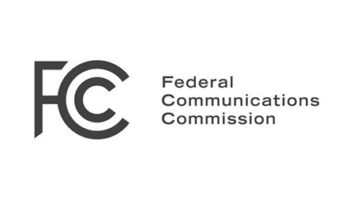Petitioner Says FM Translators Offer Another Way to Communicate With Listeners Locally
(click thumbnail)Randal J. Miller
I have filed a petition with the FCC to allow locally originated programming on FM translators. The co-petitioners – Miller Communications Inc., Kaskaskia Broadcasting Inc. and Virden Broadcasting Corp. – make up the Miller Media Group that I own.
For my 34 years in the radio business, I have believed that anything that provides locally originated programming to a community, no matter how it’s delivered, is a good thing.
My petition comes from my purchasing an FM translator construction permit in Taylorville, Ill., last fall from a religious broadcaster. While my main reason to purchase and build this translator was from a defensive standpoint, I began to think about how this FM translator could provide additional service to my listeners in Taylorville.
Current FCC rules state I have to re-broadcast a station so that the translator’s 60 dBu contour would be inside the 60 dBu coverage area of the full-power station.
I already have a full-power FM radio station licensed to Taylorville, WTIM(FM) “Newstalk 97.3.” It operates with a cluster of two other stations licensed to Pana and Tower Hill, Ill., from our Taylorville studios.
TV can do it
I consulted with my Washington FCC legal counsel, John Garziglia of Womble Carlyle, about options to try to get the FCC and the industry to consider ideas about how FM translators could provide programming to its local community. That’s how I developed the idea of petitioning the commission to allow locally originated programming on FM translators.
The crux of my argument is the fact that in 1982, the FCC allowed television translators to begin locally originated programming, because the commission has always put local service at the top of its priority list. That decision had no demonstrable adverse effect, public interest or otherwise, on television broadcasting.
That’s what I’m asking the commission to do: make local service to local communities as a continued service priority.
A terrestrial FM translator could transmit local programming such as live coverage of city council meetings, additional high-school sports play-by-play broadcasts, additional church services and other music formats within the approximately five-mile radius of listeners in the Taylorville city limits. Putting this kind of programming on my Taylorville full-power FM would not be practical, as it wouldn’t apply to listeners outside the Taylorville city limits.
The petition calls for terrestrial FM translators that do originate programming to have a main studio within 25 miles of the transmitter site for the translator.
To compete with all the new content delivery methods, broadcasters must look to the FCC to be given the advantage of as many different means of delivering locally originated programming as possible.
HD multicasting is coming, and at this point there are few receivers that have the ability to receive multicasting. Conversely, every FM radio has the ability to receive additional locally originated programming from FM translators.
The long-range view
A means of delivering locally originated programming exists now with FM translators. This would be a commercially supported service, unlike LPFM, which is non-commercial (though it has underwriting).
While the purposes of LPFM and local origination on FM translators may cross in some respects – just as non-commercial full-service broadcasting crosses in some areas with commercial full-power broadcasting – the commercially supported nature of local origination on FM translators would allow much locally originated programming to be carried on translators. This programming would not be financially viable carried on a listener-supported station such as LPFM.
Broadcasters need to take the long-range view that additional outlets for local programming, if they can be owned by broadcasters, will strengthen our industry, rather than viewing my petition narrowly as potentially creating added competition.
On May 10, the commission assigned my petition a rulemaking number, RM-11331. Please write, call or e-mail the FCC in support of this petition, copying Chairman Kevin Martin, Media Bureau Chief Donna Gregg, Senior Deputy Bureau Chief Roy Stewart and Audio Division Chief Peter Doyle.
Comments may also be filed online at www.fcc.gov . Click on “Submit a Filing” on the right-hand side and file comments under the proceeding number listed above. Comments may be uploaded, or scroll down the page to enter comments in text directly as “Brief Comments.”
I’m hoping that both commercial and non-commercial broadcasters will get behind my petition, because in my mind, anything that provides locally originated programming to a community, no matter how it’s delivered, is a good thing.











